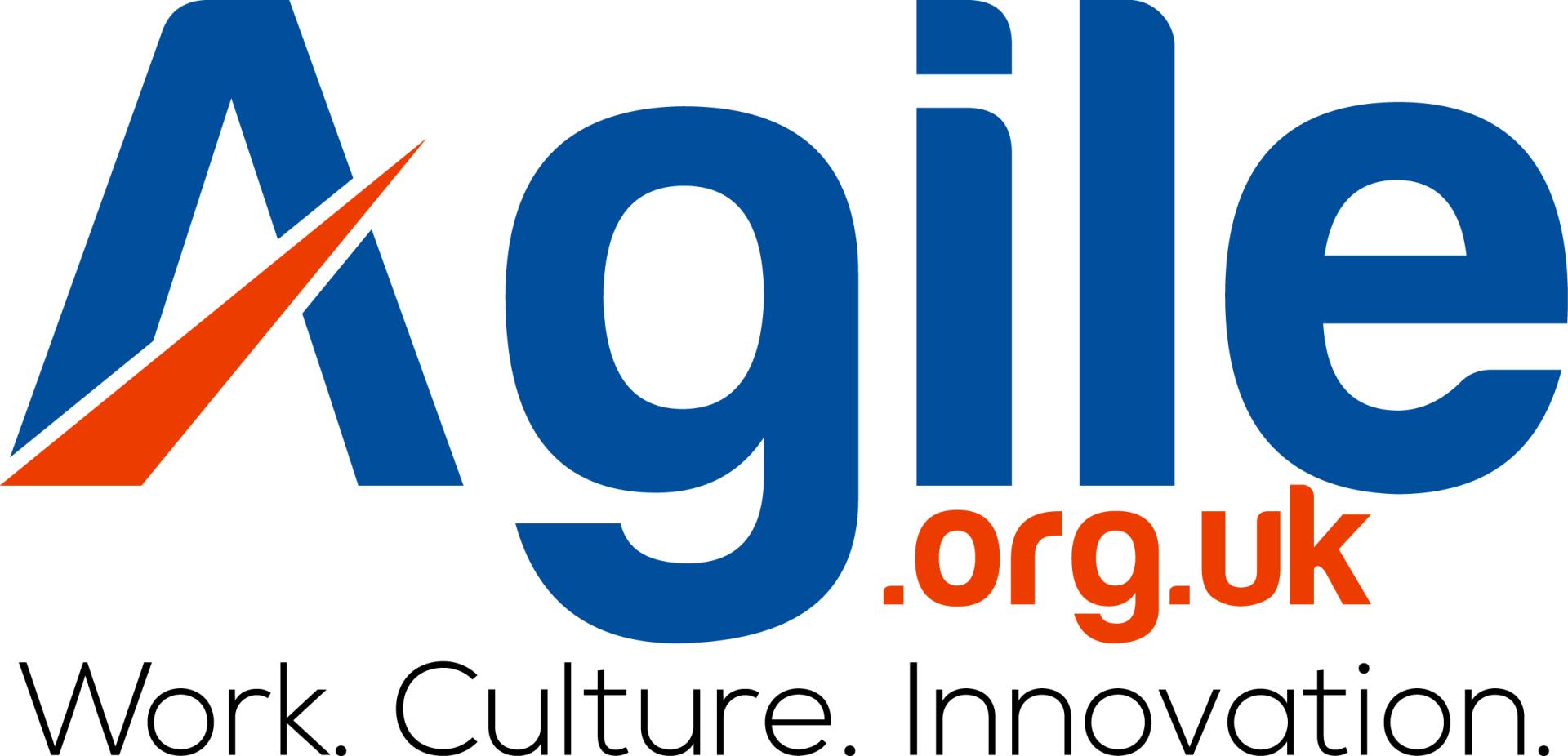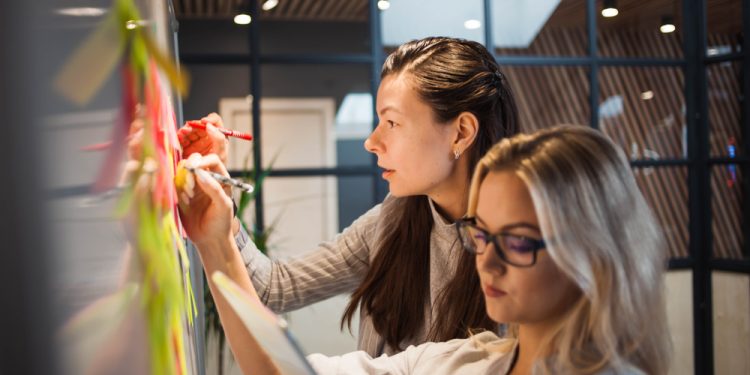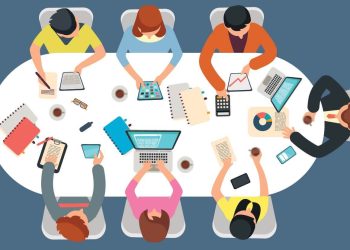The current Pandemic Crisis has put much focus on the way we live, work, socialise and learn. It has made us instantly re-think our priorities and the way we do things. We are now forced to socially distance ourselves, avoid contact at all costs and stop travelling. In response we are working en masse at home, paying people not to work and forcing non essential businesses and services to close their doors, operate in different or diminished ways.
Although these responses are intended to be short term, it is likely that some will have permanent impacts on our behaviour and the way we do things in the future. It is not expected we will return to “normal”, so we need to re-think and re-imagine “the next normal”. The journey To Agility and Beyond.
The crisis has immediately put great focus on our digital capabilities, virtual abilities and particularly the agility to react, adapt and change rapidly. Personal and business technology investment has grown at pace over the last decade and the opportunities this provides have been slow to develop. Many organisations have also embarked on agile journeys embedding the seeds of new mindsets and culture, but with many still held back by risk aversion and 20th century culture, custom and practice.
We are now seriously testing these capabilities and abilities in many areas of work and life, and so far it has enabled things to carry on albeit in often less familiar, sometimes less pleasing and not always that successfully but perhaps in practical resilient ways. However, this new enforced reliance on digital and virtual means and a “can do” agile spirit has paved the way at least in the short term to enable many to carry on remotely.
Work, Learn & Socialise @Home
Most organisations large and small across all sectors now have much of their operating workforce working from home using remote capabilities that for many go far beyond what existing agile working plans were set up to achieve. Now it is not a case of who is doing work@home, but who isn’t.
Some are already well prepared. As Jaime Sanderson, Manager at NatWest confirms “my employer has already bought into the benefits of remote working. Before Covid 19 it was the norm for my non-customer facing team to each spend one day a week working from home. The trust is there as stuff always got done, to quality standards. Additionally, many of my colleagues work in London, India and Edinburgh, so virtual meetings are the norm. The transition to working from home has not been hugely difficult because of this.”
But for many “permanent” home working is a new experience, often untested. In these situations there will be problems to overcome such as rapid investment in new devices, getting “stuff” working, on the run familiarisation with new processes, setting up space for working, dealing with new routines and ways of communicating as well as the individual work-life blend issues like juggling child care and home schooling while working and surviving.
In the education sector things are also turning to remote learning as a means of continuing education at least in the short term. Schools and Universities have closed and are focusing online to enable education remotely and at home. Dr Doug Clow, who spent 20 years at the Open University and now advising higher education organisations, says universities have delivered an “incredible” emergency response, moving all teaching online overnight with next to no resource”. However, where families are attempting to work and learn or school at home at the same time, there will be conflicts to resolve in sharing, time chunking and priority balance.
In the health sector many lessons have been learnt reacting, planning and responding to the pandemic across the whole health and social care supply chain. Much will be made of virtual interactions, digital methodologies, the agility in re-purposing manufacturing and buildings, finding new ways of doing things. This will inevitably lead to much re-assessment in the immediate and long term.
Many of the venues and spaces where we have normally socialised and come together – workplaces, shopping malls, sport and event arenas, parks, resorts and leisure centres, hotels and recreation areas etc – are currently off limits. So again we turn to our digital capability to focus online for our recreation, leisure, socialising through video and digital means.
Virtual online sport tournaments are replacing the physical with virtual tours of museums, and estate agents offering virtual tours and podcasts are just a few of the areas people are pursuing to keep things going in the current crisis. While these may not replace the physical experiences they may spawn new elements in the next normal.
Journey to the Next Normal
The current crisis will crack and demolish many of the old barriers opening the door for us to be more confident, agile, resilient and resourceful. We will become more familiar with and understand how we can better use existing digital and virtual capabilities that are in our pockets and bags, our workplaces and education establishments, our homes our transport and public places. The key question is not whether permanent changes will happen, but how far they go, and how they will be managed.
Crisis is the mother of invention. Our experiences will mean we have greater understanding of new ways of using these virtual tools, problems that need resolving in working remotely. All will be part of a movement to further develop and disseminate them deeper into existing and new areas of work and life.
A good example of emerging thinking comes from Simon Halkyard ,ASDA Head Office Resourcing Manager, ” for over 30 years the ASDA Home Office was a single location in Leeds, home to thousands of colleagues. Now Home Office is literally thousands of locations in the homes of colleagues across the country. It’s amazing what you can do when you are forced and have no time to over think it. Should this be the new normal, even after the lockdown is lifted. Why restrict your business to only employing people in one location when you can reach a nationwide (or even global) talent pool. We now have the proof that it can be done”.
However, we have short memories and as the crisis eventually fades there will be temptation to slip back to old ways, custom and practice and the what we know. So thinking about the next normal we should consider what Chris Herd says “remote work has accelerated 10 years in 10 days. The only thing that could pull people back to the office is the ego of the bad middle manager scared of losing control”.
Consider the Evidence
In developing new thinking and new ways of working it must be evidence-based. The experiences of working and living through the COVid19 crisis will colour our new mindset. The new normal will inevitably be based on our new experiences, and feelings formed during the crisis. Although there will be many positives, it will not all be positive. Some experiences will be negative and in such cases people will see the issues encountered as confirmation that working remotely does not and will not work or will only work in part.
What will suit some will be difficult for others so we need to think in terms of understanding the experiences of different workstyles, personalities, preferences and the suitability for different activities and outcomes. As Pauline Fergusson, Business Unit Director at Dee Set, says “I think it’s down to personal preference. I just love the team atmosphere and office banter, and I’m an extrovert so really struggle when not around people. I can work from home well if I also have direct interaction. We are all different so I think the biggest learning is giving people the options”.
We should not forget that many organisations and individuals in setting up at home will have “cut corners” and “made do” to make things happen in short timescales. This may have created a new cultural achievement in realising that working from home at scale is workable. But when the crisis fades Work@Home will be brought back into a more regulated climate and there will be need for investment and application of policy, compliance structure and re-assessment of suitability. For some it will return to a permission based model rather than a must do or a right imposed by government and circumstances.
A recent Gartner survey revealed 74% of CFOs expect to move a number of previously office-bound employees to remote working locations permanently post-COVID-19. But will the appetite for work@home still be as compelling for the individual and the wider organisation ?
Changing Normality
There will be more questions to answer. Will we be as open as we were, will we be more reluctant to physically embrace and share (especially hot desks and common equipment)? Will we want more resilience with a greater focus on safety and wellness ? Will there be an increased need for efficiency and cost saving? Will we return to a world of limited funds meaning different investment and business case parameters? Will we appreciate those things we have missed during isolation and place more emphasis on them, such as the need for physical contact?
There are many questions and because we are all different there will be different answers. However, there will be forces driving change towards the next normal and collectively there will be discernible re-alignments of thinking that will redevelop our mindset, cultures and the way we do things.
In looking at new alternatives Neil Usher , author of the Elemental Workplace suggests, “too many of the knee-jerk solutions being proposed right now assume that all underlying assumptions of the pre-Covid workplace will hold true, yet this is simply not the case. AI-enabled ‘smart scheduling’ allows us to achieve both by only bringing those to the workplace who need to collaborate (principally those whose roles drive innovation), intelligently rostering days and times as the need changes, while letting those whose tasks allow them to work remotely to so”.
Developing the Next Normal
What is clear is our that our focus will not just be limited to the immediate health crisis and the lessons learnt, but also on the consequent economic, cultural and lifestyle impacts. New behaviours and changes will be shaped not just by our present experiences, but also our fears. The potential for restructuring of the global economic order and the economic consequences for the future will inevitably mean a focus efficiencies which itself will further fuel the need for change.
So how will we design for the future? We expect the new normal will be a different blend of physical and virtual working. But we should not presuppose answers nor make assumptions and attempt to simply re-package old thinking.
We will find the evidence through asking questions to gather views and experiences by engaging with people – not just the strategists, thought leaders or the top teams, but also from representatives at all levels in the demand and supply chains. The New Normal will be inclusive note exclusive. It must involve everyone and consider everything.
The long-term impact of the Corona crisis across sectors – manufacturing, retail, healthcare, leisure, finance, education, logistics, property, travel, government and social welfare – may fundamentally change the way in which work is carried out, how services are delivered and the economics of provision. Some of these changes are already happening, some innovations are not new but are not yet at scale, and many more are still in the thinking and development stage.
In the current forced environment, the real life tests have provided much evidence to breakdown and sweep away previous long sustained cultural barriers, sceptical and risk averse views. However, the crisis will also create negative mindsets and barriers that will impact on the development and creation of the next normal. But what’s next is always changing. The only constant is – it never stops.
The work@home experiment is just one of the elements that will help define the ongoing balance between stability and agility, physical and virtual, risk and safety, people planet and profit in determining the new normal . Our new experiences will lead us to re-consider everything – how we shop and consume, do business and manufacture, learn socialise and communicate, travel, provide welfare and wellbeing, housing environments and space, govern, support and create partnerships, develop our lifestyles, workstyles , leisure and importantly our key dependencies and investment priorities for the future.
Agility & Beyond
Agility has been a key foundation of business strategy, operations and ways of working in the last decade. Technology capability has played a major role in the “age of agile” enabling widespread dissemination and mobilisation of digital and virtual activity.
Clear evidence now exists that agility and digital together have created the ability to choose where, when and how we work. The element that held many back was mindset, holding onto our C20th learned behaviours and culture, especially controlling managers. We now have the technology, the tools, capability and some evidence to prove agile and remote does work if we add trust. We now need the 3 Cs – confidence, courage and culture – to empower employees to take it forward.
What we have discovered already is that the biggest things can change in a flash – things we didn’t think could change quickly. This simple truth is both destabilising and liberating. But it is only those who have a change ready culture and mindset that will be liberated. Only the agile will thrive.
We will no doubt rapidly discover and identify the new elements to normality during engagement over the coming transition stage. Digital and virtual evolution has been progressing over many years but perhaps 2020 will be the time and Covid-19 the event that turns evolution into revolution. The true turning point for the next normal “to agility and beyond”……
Paul Allsopp, Founder & Managing Director, The Agile Organisation
The Agile Organisation is a niche consultancy that has been helping public and private sector organisations to develop and implement agile, smart and home working during the last decade.
Our Founder has extensive experience in developing homeworking initiatives having managed one of the largest homeworking programmes in the UK at BT plc. Get in touch to discuss how we can help you develop your next normal. www.agile.org.uk













